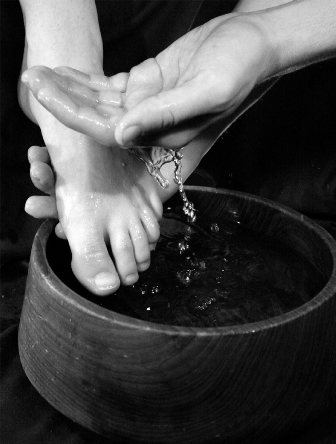It’s just so easy to sit around and wait for someone to do religion for us. Isn’t that why so many of us crave charismatic leaders; inspirational people who can step into our tired churches and mundane lives and “get us going.” In all honesty that’s frequently what I’m looking for when we move and begin the search for a church or when we are traveling for the holidays and visit someone else’s church for Christmas or Easter. It’s almost as if I sit back in the pew and mumble to myself…”Ok pastor, wow me. Bring on the religion!”
The professionalization of Christian ministry has given us many good things, but it has also had at least one unintended consequence. The average person in the pew no longer feels as if doing religion is really her or his job. “I’ll show up and participate, stand, or even clap…but initiating things is best left up to the professionals.”
That attitude is not what being a Liberal is about, and it certainly isn’t in the DNA of Evangelicals.
I certainly can’t chastise readers of Le Blog for sharing my attitude. After all, we all know what it’s like to go through sluggish phases, even in our religious lives. But when you find yourself without a church or in a new place or faced with a break in your familiar rhythm, the onus for initiating worship falls on your shoulders. And recently it fell on mine. We were facing the prospect of yet another religious holiday without an established congregation to join for worship.
We were going to have to generate some “do it yourself” religion.
Easter is easy, but Good Friday is tough. How do you walk a child through holy week without taking him to see Gibson’s Passion of the Christ? My wife and I knew that we also wanted to avoid the other extreme. Vague language about “something special” happening at the tomb on Easter Morning is so banal as to bore even me, a professed theological junkie, to tears. With this sort of sappy non-committal stuff so prevalent in our Liberal congregations, is it any wonder that our young people are fleeing the churches?
So here is the challenge we faced. My wife is a scholar of religions and knows seven languages. I’m a theologian and Liberal Evangelical. We generally agree about teaching our son a relatively conservative theological line alongside a progressive social vision. We love the Christian tradition with all of its warts, but we also want to empower our son to take his place in that tradition as a committed critic and reformer.
We wanted to include the following:
The Crucifixion: pain and death
The Last Supper
Jesus’ Foot washing ministry
Judas’ betrayal
The Resurrection
The Witness of the women at the tomb: the first missionaries!
We wanted to avoid the following:
Sloppy language about Jesus “going away for a few days”
Gruesome details about torture and execution
Anti-Semitism inherent in blaming “the Jews” for a Roman execution
The exultation of Easter without the pain of Good Friday
So we did it ourselves. We got a bottle of red wine (a Cabernet if I recall) and a bottle of grape juice. I baked a big hearty loaf of bread. We pulled an old tin washtub out of our storage closet, covered the dining room floor with towels, and pulled out a bar of soap. And that evening we sat together and read from John and from the Synoptics, sharing with our son the story of holy week, and the last supper.

He loved it! Judas makes for an easy bad guy, and Jesus, while not able to shoot spider webs, is a compelling hero. We relished the story, and took about twenty minutes to wash each other’s feet. Our boy thought that it was great for him to have a chance to give mommy and daddy a bath. When it was over, we wiped up the floor and rolled down our pant legs and sat down for dinner with bread and wine. No tiny wafers and plastic cups for us! We learned a trick from Wesley Wildman. It’s much easier for children to understand the symbolic referents of the bread and wine if they have big hunks of bread/flesh to tear off and eat and big glasses of wine/blood to drink. So we ate and drank and remembered Jesus together in our little apartment.
No priests, no instructions, no officially sanctioned rituals with preprinted worksheets, and no one looking over our shoulders telling us that it was ok. We took our religion, literally, into our own hands.
What we did that evening was not new or particularly innovative, but it was Liberal in the classic sense of the term. The Liberal is free, and we were free to celebrate the sacrifice of Jesus despite the fact that we had no institutional sanction or blessing. Of course, those of us lucky enough to live in liberal democracies are all politically free to practice our religion. But many of us choose to stay trapped in tradition. We get lazy, we bet busy, and we fall into the habit of letting the minister do religion for us. The real Liberal–and I hope that I’m becoming one–finds ways of breaking free and taking responsibility for her or his own faith and practice. And what is more, any of us can do this in almost any kind of church!
Finally, the more my family and I go it alone and work to raise our son in the Christian traditions, the more I see the intimate connection between Liberalism and Evangelicalism. The good news of Jesus that Evangelicals celebrate is always good, but for the Liberal who takes religion into her or his own hands, it is experienced as NEWS over and over again.
